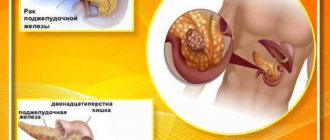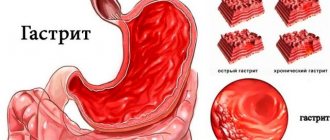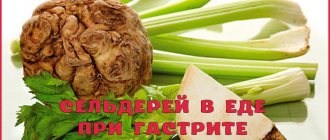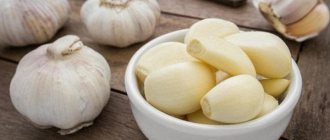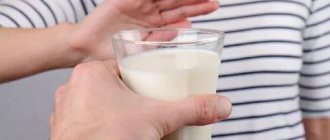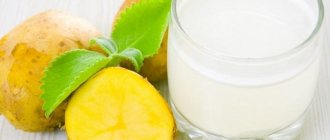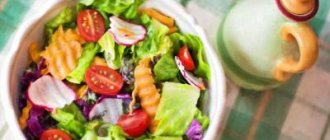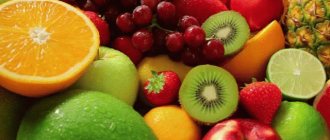Fasting treatment is a method of alternative medicine, the purpose of which is to cleanse and rejuvenate the body; the use of the technique involves refusing food for a certain period of time. Treating the gastrointestinal tract with fasting is the right way to give the digestive system the opportunity to rest and recover.
Is it possible to fast if gastritis is detected?
Fasting for gastritis is not the most effective method of therapeutic treatment for severe stages of gastrointestinal disease. In the erosive form, gastric juice, which helps digest food, will directly affect the affected areas of the stomach without food. This can lead to the development of serious complications, such as stomach ulcers. The presence of a high level of hydrochloric acid is a ban on fasting. In patients with inflammation of the mucous membrane, juice is constantly produced. Therefore, with high acidity in the stomach, it is a strong irritant.
Treatment of gastritis with low acidity by fasting is possible for a short period of time. The absence of food promotes natural cleansing of the body. Fasting for gastritis is recommended when an acute form of the disease is detected. The reason for the formation of this variety is often the ingress of pathogenic microorganisms and bacteria. Lack of food will prevent the infection from spreading. Avoiding food helps your body naturally repair damage from harmful toxins.
Who shouldn't go hungry?
In case of hemorrhagic gastritis, the procedure is considered dangerous, since the mucous membranes are even more injured by digestive juice and can cause ulcerative lesions. It is observed that with increased acidity of gastric juice, the procedure can also become dangerous.
It is allowed to use fasting only when the acidity of the stomach is low. In this case, the body is cleansed and unloaded, gastric juice is produced in small quantities and does not irritate the mucous membrane so much.
The fasting process should not be prolonged, as in this case the production of glands may cease.
Fasting is absolutely contraindicated for:
- weight deficiency;
- endocrine diseases of the adrenal glands, thyroid gland, pituitary gland;
- rheumatism;
- malignant neoplasms;
- active tuberculosis;
- nonspecific ulcerative colitis, Crohn's disease;
- active hepatitis;
- severe renal or heart failure;
- purulent processes in the abdominal cavity;
- increased blood clotting;
- arrhythmias;
- previous heart attack or stroke;
- pregnancy and lactation;
- aged less than 10 and more than 75 years;
- epilepsy.
In addition, starvation treatment is not carried out if the diagnosis is in doubt. In each case, the decision on the possibility of fasting is made individually, taking into account the entire range of indications and contraindications.
Fasting rules
Therapeutic fasting, regardless of the form of the disease, requires adherence to certain rules, following which will avoid progression and complications of gastritis:
- it is necessary to gradually give up eating food: the first experience should last no more than one day;
- control over physical and emotional state;
- refusal to fast during periods of exacerbation of chronic diseases;
- compliance with the drinking regime: at least 2 liters of pure or mineral still water;
- refusal to fast if severe pain or cramps occur;
- maintaining the temperature regime: constantly staying in a warm room, avoiding hypothermia;
- proper sleep, rest;
- regular walks;
- lack of intense sports.
To achieve the most effective results throughout all days of the fasting diet, it is recommended to regularly perform water procedures, give enemas and use a mild laxative to normalize the functioning of the gastrointestinal tract.
Advice from a gastroenterologist
What is the opinion of gastroenterologists regarding therapeutic fasting for gastric and duodenal ulcers? Most of them are inclined to believe that fasting with such a pathology, especially during its exacerbation, is dangerous. And fasting, which is used as self-medication without the knowledge of a doctor, is generally unacceptable.
Dietary nutrition is fundamental for ulcers. And for those who believe in fasting, it is possible in a short-term form, but only if a specialist gives the go-ahead to it after examining the patient.
Acute gastritis
In case of acute gastritis, on the first day of the attack you need to completely stop eating food to relieve the body. Fasting should last up to 2-3 days, depending on the patient’s well-being. During this period, you can drink liquids, but it is better to keep them to a minimum. For health reasons, on the second day it is possible to drink weak tea without adding sugar. An expansion of the diet can occur on the third day if there is no pain, inconsistent stool (diarrhea, constipation), belching.
Therapeutic fasting during the acute form of the disease should not exceed three days in order to avoid progression of the pathology. Subsequent nutritional rules including permitted foods are determined by a gastroenterologist.
Chronic gastritis
For chronic gastritis, a gradual transition to fasting is recommended. It is better to start the process with a slow refusal of food, so as not to sharply reduce the load on the organ of the digestive system. The duration of preparation of the body is from 7 days. On the first day of fasting, a dry diet is allowed without drinking liquid and with the opportunity to drink a small amount of pure mineral water.
When do doctors prescribe fasting?
In official traditional medicine there is no such method of treating ulcers as fasting. The fact is that it is dietary nutrition with frequent and split meals that helps neutralize excess acid and the enzyme pepsin. When the stomach is empty for a long time, they begin to affect the mucous membrane, only worsening its already disturbed condition.
However, fasting for ulcers is still prescribed to patients, but only in one case - when it is complicated by bleeding. The vessels located in the ulcerative defect rupture and blood flows into the stomach. Sometimes such bleeding can be very massive and severe.
Patients with a similar complication are treated in a hospital setting, usually with a surgical method - stopping bleeding endoscopically through a probe, or gastric resection surgery. For minor bleeding, they begin with conservative measures, which includes strict fasting - excluding food and even drinking for several days until the bleeding stops completely.
Features of well-being during fasting
Refusal to eat is stressful for the body. Fasting may be accompanied by certain symptomatic signs:
- constant feeling of hunger for several days;
- mild pain in the stomach, if strong, acute cramps appear, you should not continue fasting;
- feeling of weakness, malaise, lethargy;
- unpleasant odor from the mouth;
- white coating on the tongue;
- sour, bitter taste in the mouth;
- feeling of dryness, feeling of thirst;
- gagging, nausea in the morning;
- loss of appetite, disgust at the sight of food during prolonged fasting of 5 days;
- headache;
- temporarily fast or slow heart rate.
Unpleasant symptoms are natural manifestations of the body during refusal to eat food. If constant pain or a sharp deterioration in health occurs, it is necessary to stop using hunger to treat the disease.
Symptoms accompanying the period of refusal to eat
During a hunger strike, a person may develop the following symptoms:
- Increased hunger. It may first develop for a couple of days, and then the sensation disappears.
- Pain. They occur at the initial stage due to the active production of juice, but quickly pass.
- Decreased activity. There is often a feeling of constant fatigue and apathy, but after 3-4 days a feeling of lightness sets in.
- Unpleasant feeling in the mouth. The smell, dryness, and plaque will disappear after the end of the fasting period.
- Lightheadedness. A characteristic sign of the first days of a hunger strike.
- Pain in the head. Relaxation or a walk in the fresh air will bring relief.
- Increased or decreased heart rate. They go away after an adaptation period.
Preparing the body for fasting
Refusal to eat food is a gradual process that requires a preparatory stage. You should not suddenly stop eating. Preparation involves slowly giving up familiar foods:
- during the first day of the fasting diet, you should exclude meat and fish ingredients, instead eat vegetables and fruits, fermented milk products;
- on the second day you need to give up sweets, flour, and bakery products;
- consumption of products of plant origin baked, stewed, boiled, steamed;
- during the fourth day, replace your usual meals (2-3 times) with a glass of fermented milk product, for example, kefir, fermented baked milk;
- on the fifth day you need to eat baked, stewed, boiled vegetables;
- sixth day – intake of dairy products, for example, cottage cheese, kefir;
- seventh day - the diet is limited to glasses of fresh kefir.
After a week of the preparatory stage, you can begin therapeutic fasting.
End of the procedure
In order not to expose the body to additional stress, fasting for gastritis should be ended gradually. Products from the permitted dietary menu for gastritis are sequentially introduced into the diet.
You can add one type of food every day.
Immediately after fasting you should not consume:
These products contain many acids that can harm the mucous membrane. Vegetables rich in fiber take a long time to digest, which increases the load on the stomach.
First, you need to introduce semi-liquid porridges and slimy soups into your diet. Then, after 1-2 days, boil or steam vegetables. After this, you can add fermented milk products and, lastly, meat and fish.
Nutrition during the treatment period must comply with the rules of the diet. You need to eat in small portions, several times during the day. Fatty, spicy, salty foods are excluded from the diet. The menu should be balanced and contain natural, healthy food. You should follow these rules after treatment if you want to cure gastritis forever.
Before starting therapeutic fasting, consult your doctor. If he believes that this procedure is possible, do it taking into account all the recommendations.
Gastritis is one of the most unpleasant diseases. That is why it is especially sad to realize that a huge number of people suffer from this disease. And everyone who has personally experienced the manifestations of gastritis is ready to take any measures to get rid of pain and discomfort as soon as possible. To remove this diagnosis, a whole range of measures is required, which is not limited to taking medications. It is possible to recover from gastritis only by completely changing your lifestyle. At first, this formulation may seem too harsh and intimidating, but in practice everything is not at all so difficult. Soon a person gets used to the new rules, and it turns out that following them is not at all difficult, especially since following them brings long-awaited relief.
Sometimes doctors specifically prescribe fasting for patients suffering from this disease. But this method is not suitable for everyone. Who and how can fast with gastritis? Read the details in our article.
Contraindications to a fasting diet
Fasting treatment is contraindicated in certain forms of inflammation of the gastric mucosa. It is strictly forbidden to follow a strict diet for acute infectious gastritis during a course of medication with potent drugs. Therapeutic fasting is prohibited for patients diagnosed with exhaustion or underweight.
The diet is contraindicated for the category of people who, based on the results of laboratory tests, have found an insufficient amount of substances important for life in the body. With any type of gastritis, fasting is prohibited for pregnant women, as well as girls during lactation.
Nutrition for stomach ulcers
Therapeutic nutrition for stomach ulcers is an excellent alternative to fasting, proven by many years of practice, which cannot always be called therapeutic. There is a diet established by world dietetics and gastroenterology, which is based on the following basic principles:
- Do not overload the stomach and do not leave it empty for a long time, that is, meals should be small and frequent - up to 5-6 times a day, with a small amount of food.
- Eat food at certain times, because the stomach develops a reflex to increase secretion at certain times.
- Food should have a temperature close to body temperature (35-40°), neither cold nor hot.
- In terms of composition, the diet should contain a sufficient amount of easily digestible protein, carbohydrates, healthy fats with essential fatty acids, and vitamins.
- Food should not injure the mucous membrane: not coarse, well processed, not hard, not too salty, and not contain preservatives or hot seasonings.
- Drinks should not contain carbon dioxide (gas), alcohol, high caffeine content, dyes, or preservatives.
The specialist will always give detailed dietary recommendations to each patient, taking into account the nature of the ulcerative process and its stage.
Ending the fast
It is strictly contraindicated to abruptly return to a normal diet. It's better to start eating gradually. After a fasting diet, it is not recommended to consume fruits, vegetables without heat treatment, and juices. The main meals that help relieve hunger in various forms of gastritis are porridges cooked in water (except for oatmeal, semolina, they need to be cooked in milk), decoctions of cereals, liquid soups, broths. After fasting, it is recommended to adhere to fractional meals - frequent consumption of food in small portions.
Compliance with the drinking regime is the basis for the correct completion of a therapeutic diet. Pure mineral water is the best source of strength and energy for a weakened body. The treatment time for the recovery diet should be at least 3 days. After a week of proper nutrition, you can include chopped fruits and vegetables (turnips, carrots, beets, pumpkin) in your diet; with low acidity, low-fat kefir is allowed.
Fasting during acute and chronic forms of gastritis is a mandatory recommendation if you follow proper nutrition. A therapeutic diet involves complete abstinence from food for no more than 3 days. In order to avoid serious complications of the disease and health problems, it is recommended to prepare the body in advance for the absence of usual foods. Compliance with the rules of therapeutic fasting will allow you to achieve the most effective results in the treatment of gastritis.
We recommend: Can chamomile cure gastritis?
